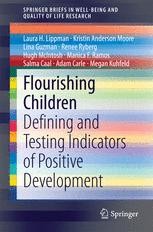- The Friday Mindset
- Posts
- Friday Mindset #143
Friday Mindset #143
Helping students get better at studenting

Happy Friday!
It’s here at last. The week that wouldn’t die is finally put to the sword and the joys and pleasures of a weekend beckon.
But before we read, let’s set the scene.
Outside your classroom window, the staff car park has emptied. Beyond your door, silent corridors doze. Down at the gates, an empty Pringle tube rolls disconsolately back and forth, long forgotten by its former owner… and on the street, a crook-backed dog-walker shakes his fist at the retreating hordes, complaining that kids these days have no respect.
That’s right folks, conditions are perfect for a scan of the Friday Mindset.
Let’s dive in.
Something to try...
Tom Whitwell used to be a journalist at The Times for many years, and is now a company CEO and freelance writer. We stumbled across his work when a pal shared the lists he makes on Medium. For ten years now, each year, on December 1st, Whitwell compiles a list of the 52 things he’s learned that year - one for each week.
And they’re just… weird, hopeful, amazing, exciting, bizarre - terrific examples of curiosity in action. Here’s some things you could do with one of Whitwell’s lists:
(i) have your tutees work in small teams to look through a list, choose a weird, positive, interesting fact, research it and present it back to the group in a fuller form (Whitwell provides links to where he learned the stuff, so this is pretty easy)
(ii) copy Whitwell: compile an immediate list of 52 (or 26 or whatever) strange things the group (or groups) already know about, and write them into a shared document. Then share documents with other groups.
(iii) have a random fact day - read and discuss one at a time
(iv) have a weekly discussion and collation of weird and wonderful things we’ve learned this week, and fill your own list out as the year goes on. Put some students in charge of it.
And if these ideas don’t appeal, have a look through Whitwell’s amazing lists and be inspired to keep a list yourself:
Something we're reading...
It’s a new calendar year - let’s continue to think about motivation, engagement, and belonging.
The document you have below is a superb summary of the research on engagement and motivation in schools, written by former teacher and associate director of The Ambition Institute, Steve Farndon.
There’s so much good stuff here - many of which we’ve already written about or explored in presentations, but put together with such helpful clarity and sense of purpose. Practical, insightful stuff - essential reading folks. Download here:
Linked, and just as thought-provoking, is this short clip of Professor of Psychology David Yaeger talking about belonging in schools. We’ve clipped it for you, extracting the best stuff in just 100 seconds - but there’s lots to reflect on. Have a watch, then consider how you can leverage a sense of belonging belonging to extract that discretional commitment from your learners:
Portal Talk...
We’ve been getting more and more requests from schools about how the VESPA questionnaire and activities can be used for Key Stage 3 students. There is a growing realisation than many of the characteristics of metacognition we try to instil in students Post 16, require development and nurturing over a longer period of time if they are going to have a lasting impact on wellbeing and performance.
Welsh Government have recently released new statutory guidance around “Learner Effectiveness” which, among a raft of changes to the Welsh exam specs, includes a statutory requirement for all schools to incorporate “Post-16 Planning” as part of their 14-16 curriculum. (Thank you to Emma Lloyd at CSC for sharing this with us).
To try and support schools further, Tony and Martin have been looking at this recently, and in doing so came across this fascinating piece of research from 2016 - Lippman, Laura H., et al. Flourishing Children: Defining and Testing Indicators of Positive Development. Springer, 2016:
From this has emerged “SPARK”, our prototype questionnaire tailored towards students in KS3 & 4 (ages 11-16). Building on the popularity of the VESPA Questionnaire, SPARK is designed to help teachers better understand the traits that influence student success—and ultimately, how to nurture them in the classroom.
SPARK Themes
Self-direction: Initiative, proactiveness, and a bias toward action
Purpose: Hope, aspirations, and sense of direction
Awareness: Empathy, relationships, and understanding others.
Resilience: Grit, perseverance, and reliability
Knowledge: Curiosity, attention, and valuing education.
Would you like to help shape the development of SPARK? We’re looking for schools to participate in a beta-testing pilot programme to try the new questionnaire. By taking part, you’ll help us measure its potential uses and reliability while trying it out with your students. Click the link below to test a rough-and-ready pilot version…
If you would like to learn more about the SPARK project, or the VESPA Portal for students or staff please use my meeting link below to schedule a meeting.
Our latest offer...
A little earlier in the year, we ran a free online session, a 45 minute Zoom call where we covered some work we’ve been doing on effective target setting.
It’s time to run it again for those of you who couldn’t make it or wanted a recording!
It’s a session covers our developing thinking on intervention, and successful target-setting for students (thus ‘towards’ in the title - it’s a work-in-progress). We’ve gone way past just ‘set SMART targets’, we’ve gone through a load of examples of staff-set targets for students to identify what we think might be best practice. In summary:
We’re online at: 3:45pm on Thursday 27th of February
Covering: towards effective target setting for KS4 and 5 students
It’s going to be a Zoom session. Here’s the link. You might to cut and paste, drop it into your calendar:
Meeting ID: 852 9424 4530 Passcode: 670707
Right folks, that’s it for this week.
Nip out and have a chat with the dog-walking guy. Apologise for the kids. No doubt the topic will quickly shift and you’ll end up defending the length of your holidays. Standard.
All the best to you and yours,
Martin, Steve and Tony







Reply